Cultural Resources
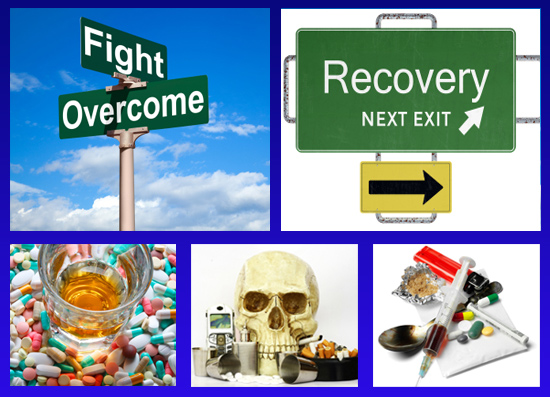
ANTI-ADDICTION DAY
CULTURAL RESOURCES
Sunday, June 3, 2012
Anthony B. Pinn, African American Lectionary Cultural Resource Team Member
I. Historical Considerations
Statistics related to 2001 demonstrate that almost 16 million citizens—roughly 7 percent of the population—of the United States over the age of 12 were involved in the use of illegal drugs.1 This was an increase in percentage worth noting. As of 2008, it was estimated by at least one study that slightly over 50% of “older adolescents and adults” had experimented with illegal drugs or used prescription drugs in ways unintended by the manufacturing or professional community.2 And while white Americans have higher rates of drug abuse than African Americans, heroin and crack cocaine are the exceptions to this statement. It is also important to recognize that the average age at which African Americans begin use of illegal drugs is 12,3 and this has consequences for ongoing life options and opportunities.
African Americans tend to experience greater levels of social problems stemming from drug use, and have higher rates of involvement in the criminal justice system related to illegal drug selling and use. The cycle is alarming in that use of illegal drugs is often correlated with low levels of education, and there is also a connection between illegal drug use and unemployment. Drug abuse is a problem within African American communities that destroys life in a variety of connected ways. These communities struggle with the both legal—alcohol—and illegal drugs.
Alcohol is the most common drug used by young African Americans, but it is certainly not the only addicting drug affecting the life circumstances of African Americans. The marks of these drugs are evident in the high levels of addiction within African American communities. For the past three decades, one of the most graphic examples of this situation has been the rise and proliferation of crack cocaine—a relatively inexpensive drug over against the more costly powder cocaine. Crack cocaine provided the basis for an illegal economy that increased violence.
Consequences are significant: This tragic situation has affected the life cycle of communities—from children born addicted, to people of all ages wasting away as a consequence of addiction. In addition, statistics make clear a strong link between drug addiction in these communities and increased levels of crime. While there are social reasons for the presence of addictive substances in African American communities, the predicament also involves individual choices. That is to say, addiction speaks to a complex arrangement of social dynamics and poor personal decisions. Some Christians and churches have made an effort to alter this reality.
II. Biographical Reflection
Glide Memorial Church of San Francisco
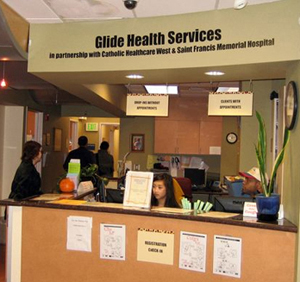 For those unfamiliar with this church situated in the heart of San Francisco, a scene from “The Pursuit of Happyness” starring Will Smith gave it greater recognition. If you’ve seen the movie, you will remember Will Smith’s character and his son attempting to secure space in the Glide Memorial Church’s shelter for the homeless. That scene gave a hint, a small example, of this church’s commitment to the welfare of those who are suffering most, a sense of ministry that extends the church beyond the comfort and security of its walls and doctrines. This church has a long history and legacy of service to those in need within the city of San Francisco. In fact, it describes its mission as the creation of “a racially inclusive, just and loving community mobilized to alleviate suffering and break the cycles of poverty and marginalization.” The ministry is committed to personal and communal transformation that extends the spiritual to the physical in ways meant to engage the full impact of the gospel message on a full range of human needs. One element of this ministry is the church’s “Compassionate healthcare” program, including a health clinic that services some 13,000 persons per year.
For those unfamiliar with this church situated in the heart of San Francisco, a scene from “The Pursuit of Happyness” starring Will Smith gave it greater recognition. If you’ve seen the movie, you will remember Will Smith’s character and his son attempting to secure space in the Glide Memorial Church’s shelter for the homeless. That scene gave a hint, a small example, of this church’s commitment to the welfare of those who are suffering most, a sense of ministry that extends the church beyond the comfort and security of its walls and doctrines. This church has a long history and legacy of service to those in need within the city of San Francisco. In fact, it describes its mission as the creation of “a racially inclusive, just and loving community mobilized to alleviate suffering and break the cycles of poverty and marginalization.” The ministry is committed to personal and communal transformation that extends the spiritual to the physical in ways meant to engage the full impact of the gospel message on a full range of human needs. One element of this ministry is the church’s “Compassionate healthcare” program, including a health clinic that services some 13,000 persons per year.
One dimension of what this nurse-staffed healthcare program offers involves attention to behavioral health and recovery programs through which issues such as substance abuse are addressed and ongoing improvement is enhanced. The church understands that a limited sense of personal worth, value, and self-respect can make a person vulnerable because many cope with these feelings and negative beliefs through the numbing effects of drug use. The Glide tries to counter this through a gospel-influenced sense of self-worth and importance and systematic treatment based on an understanding that movement beyond drug addiction is a process—a long process marked by small steps of progress. Throughout this process, it is understood that the patient must determine the look and content of success. In other words, “it’s beyond stopping the use of drugs and alcohol; RECOVERY is as an ongoing process to achieve a state of health and wellness. Meeting our patients where they are and allowing them to define their goals and priorities in the process, is what we do. We are partners working together to accomplish what they define as success.”4
III. Intervention Resources and Signs of Substance Abuse
InterventionAmerican.org offers a state by state listing of drug intervention and rehabilitation programs. They can be found on the web at www.interventionamerica.org. Neither The African American Lectionary nor the author of this unit can vouch for the treatment of any facility that you or your church may decide to use from the Intervention America list. A significant amount of information is available on substance abuse facilities in your area; be sure to get all of the information you need to make an informed decision. You can also call City Hall in your city to find facilities and other information.
Below are common signs of substance abuse provided by Intervention America.
Friends and family may be among the first to recognize the signs of substance abuse. Early recognition increases chances for successful treatment. Signs to watch for include the following:
- Giving up past activities such as sports, homework, or hanging out with new friends;
- Declining grades;
- Aggressiveness and irritability;
- Forgetfulness;
- Disappearing money or valuables;
- Feeling rundown, hopeless, depressed, or even suicidal;
- Sounding selfish and not caring about others;
- Use of room deodorizers and incense;
- Paraphernalia such as baggies, small boxes, pipes, and rolling paper;
- Getting drunk or high on drugs on a regular basis;
- Lying, particularly about how much alcohol or other drugs he or she is using;
- Avoiding friends or family in order to get drunk or high;
- Planning drinking in advance, hiding alcohol, drinking or using other drugs alone;
- Having to drink more to get the same high;
- Believing that in order to have fun you need to drink or use other drugs;
- Frequent hangovers;
- Pressuring others to drink or use other drugs;
- Taking risks, including sexual risks
- Having “blackouts”—forgetting what he or she did the night before;
- Constantly talking about drinking or using other drugs;
- Getting in trouble with the law;
- Drinking and driving; and
- Suspension from school or work for an alcohol or drug-related incident.
If you think someone you care about is using drugs, don’t wait! There is no safe amount when it comes to abusing drugs. The longer you wait the higher the risk.5
IV. Songs That Speak to the Moment
Life is marked by battles with self and with conditions, and sometimes we stumble along the way. However, anti-addiction Sunday provides an opportunity to recognize, confront, and triumph over those moments of weakness shaped by bad habits. The following gospel hymn speaks symbolically to the nature and meaning of our life struggles, and offers a way to cope with life’s crises.
We Will Understand It Better By and By
We are tossed and driv’n on the restless sea of time;
Somber skies and howling tempests oft succeed a bright sunshine;
In that land of perfect day, when the mists have rolled away,
We will understand it better by and by.
Refrain
By and by, when the morning comes,
When the saints of God are gathered home,
We’ll tell the story how we’ve overcome,
For we’ll understand it better by and by.
We are often destitute of the things that life demands,
Want of food and want of shelter, thirsty hills and barren lands;
We are trusting in the Lord, and according to God’s Word,
We will understand it better by and by.
Refrain
Trials dark on every hand, and we cannot understand
All the ways that God could lead us to that blessed promised land;
But He guides us with His eye, and we’ll follow till we die,
For we’ll understand it better by and by.
Refrain
Temptations, hidden snares often take us unawares,
And our hearts are made to bleed for a thoughtless word or deed;
And we wonder why the test when we try to do our best,
But we’ll understand it better by and by.
Refrain6
As this Sunday’s theme should make clear, for Christians there are moments in life that can only be addressed and resolved through assistance. Consistent with the nature of addiction, there are some moments in life that require the aid of others who understand those circumstances. The following song gives some sense of this by highlighting the manner in which some of humanity’s struggles are only resolved through Christ.
Give Thanks
O give thanks, give thanks unto the Lord,
For He is good, and His mercy endureth forever.
To Him which led His people through the wilderness,
For He is good, and His mercy endureth forever.
He turned the wilderness into a standing water,
And dry ground into water springs.
Strengthen ye the weak hands and confirm the feeble knees,
Say to them that are of a fearful heart,
Be strong, fear not, behold your God will come with a recompense.
Then shall the eyes of the blind be opened
And the ears of the deaf, of the deaf unstopped.
And a highway shall be there,
And it shall be called the way, the way of holiness,
The unclean shall not pass over it,
The unclean shall not pass over it,
But the redeemed of the Lord shall walk therein;
And the ransomed of the Lord shall return and come to Zion,
To Zion with songs and everlasting joy upon their heads,
They shall obtain joy and gladness,
And sorrow and sighing shall flee away.7
Recognition of human frailty and shortcomings is important. For Christians this involves seeing the need to embrace Christ in the condition one is in. It isn’t possible, Christians will say, to “get oneself together, to end one’s bad habits” and then come to Christ. The following song speaks to human shortcomings and the compassion of Christ.
Take Me as I Am
Jesus, my Lord, to Thee I cry;
Unless Thou help me I must die;
Oh, bring Thy free salvation nigh,
And take me as I am.
Refrain
And take me as I am,
And take me as I am,
My only plea—Christ died for me!
Oh, take me as I am.
Helpless I am, and full of guilt;
But yet for me Thy blood was spilt,
And Thou canst make me what Thou wilt,
And take me as I am.
Refrain
No preparation can I make,
My best resolves I only break,
Yet save me for Thine own Name’s sake,
And take me as I am.
Refrain
Behold me, Savior, at Thy feet,
Deal with me as Thou seest meet;
Thy work begin, Thy work complete,
And take me as I am.
Refrain8
V. Quotations and Poetry
If you find it in your heart to care for somebody else, you will have succeeded.| ——Maya Angelou9 |
I really don’t think life is about the I-could-have-beens. Life is only about the I-tried-to-
do. I don’t mind the failure but I can’t imagine that I’d forgive myself if I didn’t try.
| ——Nikki Giovanni10 |
Mistakes are a fact of life. It is the response to the error that counts.
| ——Nikki Giovanni11 |
When people care for you and cry for you, they can straighten out your soul.
| ——Langston Hughes12 |
I Taught Myself to Live Simply
I taught myself to live simply and wisely,
to look at the sky and pray to God,
and to wander long before evening
to tire my superfluous worries.13
I Mark Your Courage
I mark your courage in that moment of admission,
when your soul cried out in sympathetic pain,
worn thin by abrasions of self-imprisonment
and total subjugation to providence.14
VI. Anti-Addiction Resources
Videos
Websites
National Substance Abuse Resources. Online location: http://nationalsubstanceabuseindex.org/fedresources.htm
Books
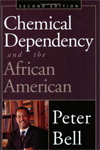 |
Bell, Peter. Chemical Dependency and the African American, 2nd edition. Center City, MN: Hazelden Publishing, 2002. |
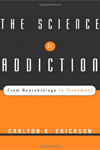 |
Erickson, Carlton K. The Science of Addiction: From Neurobiology to Treatment. New York, NY: W. W. Norton & Company, 2007. |
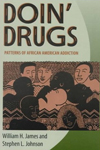 |
James, William H. and Stephen L. Johnson. Doin’ Drugs: Patterns of African American Addiction. Austin: University of Texas Press, 1996. |
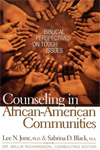 |
June, Lee N. and Sabrina Black, eds. Counseling in African-American Communities. Grand Rapids, MI: Zondervan, 2002. |
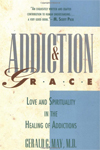 |
May, Gerald G. Addiction and Grace: Love and Spirituality in the Healing of Addictions. New York, NY: HarperOne, 2007. |
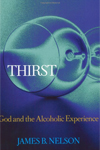 |
Nelson, James B. THIRST: God and the Alchoholic Experience. Louisville, KY: Westminster John Knox, 2004. |
Notes
1. Alexander, Michelle. The New Jim Crow: Mass Incarceration In the Age of Colorblindness. New York, NY: New Press, 2010.
2. Ibid.
3. Ibid.
4. Glide Memorial Church, Recovery Services. Online location: http://www.Glide.org
5. Intervention America. Online location: www.interventionamerica.org
6. We’ll Understand It Better By and By. By Charles Albert Tindley. African American Heritage Hymnal. Chicago: GIA Press, 2001. #418
7. Give Thanks. Author Unknown. From the Shaker Hymnal. East Canterbury, NH: The Canterbury Shakers, 1906. Online location: http://nethymnal.org/htm/g/i/givthank.htm
8. Take Me as I Am. By Eliza Hamilton. Music by Ira Sankey. Online location: www.cyberhymnal.org/htm/t/m/tmeasiam.htm
9. Maya Angelou. Online location: http://famouspoetsandpoems.com/poets/maya_angelou/quotes
10. Nikki Giovanni. Online location: http://famouspoetsandpoems.com/poets/nikki_giovanni/quotes
11. Ibid.
12. Langston Hughes. Online location: http://famouspoetsandpoems.com/poets/langston_hughes/quotes
13. “I Taught Myself to Live Simply.” By Anna Akhmatova. Online location: http://famouspoetsandpoems.com/poets/anna_akhmatova/poems/31
14. “I Mark Your Courage.” By Ivan Donn Carswell. Online location: http://famouspoetsandpoems.com/poets/ivan_donn_carswell/poems/23143



